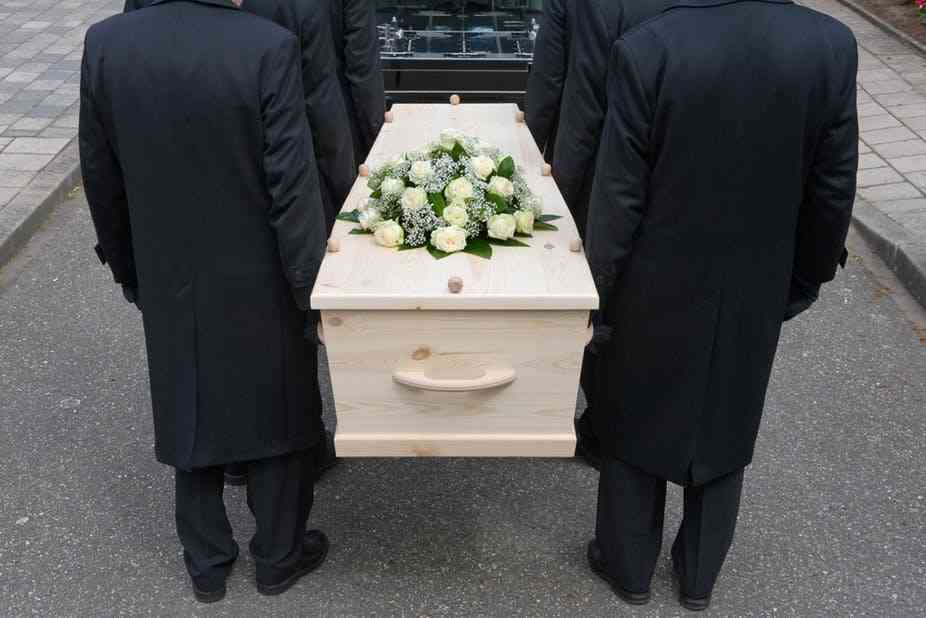
ONE of the major reasons for taking out insurance is the risk transfer principle.
This is a strategy of managing risk where one party assumes the potential liability of another.
Purchasing insurance is one way of transferring those liabilities.
Funeral assurance is a contract where the assurer guarantees to cover the funeral costs of the insured.
While we all have experienced a bereavement at one moment in life, not all of us adequately plan for this and a funeral may fall on us when we least expect it.
Funerals range from a spectrum of very simple, quick, and humble burials to lavish ceremonies that can last days with all the trimmings including professional caterers and even professional mourners.
The expenditure for even a simple funeral may be huge and for most considerably above one’s monthly income. This may thus translate to substantially high financial risk to individuals.
Funeral assurance, therefore, serves to transfer the financial risk when a death occurs to the funeral assurer and in this giving the bereaved family peace of mind that their loved one will receive a dignified burial.
- IPEC warns funeral assurers over expenseIPEC warns funeral assurers over expense
- IPEC warns funeral assurers over expenseIPEC warns funeral assurers over expense
- Zimbabwean migrants making it big in South Africa
- Zimbabwean migrants making it big in South Africa
Keep Reading
Once the funeral assurance company assumes the financial risk transferred by the individual, they are now the bearers of that risk.
As they on-board more customers, the risk assumed accumulates.
The potential consequence of risk accumulation is that funeral assurance companies become exposed to a concentrated financial risk. The accumulation of liabilities paid out may result in financial ruin to funeral assurance companies due to accumulation of losses and catastrophes.
This may have a negative impact on capital levels and solvency levels of funeral assurers.
The Covid-19 pandemic was unprecedented.
It exposed funeral assurance companies to claims that reduced the sectors solvency levels to near zero (Ipec,2022) with the potential for ruin for several of the companies.
None of the funeral companies had any form of reinsurance and this position has been prevailing for many years despite calls by Ipec to consider reinsurance.
It is anticipated that in the same manner individual realises the burden of the funeral risk, and elects to transfer it to funeral assurers, the funeral assurer uses the facility of reinsurance to transfer risk.
The reinsurer further transfers the same risk to the retrocessionaire.
Reinsurance is basically insurance for insurance companies, and it developed from the realisation that players were unable to bear the full financial risk on their own.
Reinsurance, therefore, is a form of insurance similar in nature to insurance as it aims to reduce the variability of financial loss. It is a traditional and efficient risk management tool.
The generic role of reinsurance includes risk spreading, smoothing of income, capacity provision, catastrophe protection, solvency enhancement, accumulation control, financial stability and providing technical expertise.
Each insurer arranges reinsurance programmes for specific reasons and benefits and reinsurance solutions are tailored to address specific concerns of the insurer.
A new insurance company may, for example, arrange reinsurance for capacity provision since reinsurance enables the insurer to underwrite more policies of higher values due to a portion of their liabilities being transferred to the reinsurer.
Other insurers may opt for reinsurance because it provides additional capital since they can offset the risk of loss in the insurance liabilities and release their capital to be invested elsewhere to increase their revenues.
Some companies may be concerned by natural disasters, such as cyclones.
Natural disasters have the potential to cause bankruptcy due to accumulation of claims.
Shifting insurance liabilities to reinsurers gives financial relief to the insurer where such events occur.
Funeral assurers are insurers, and this implies that the concept of reinsurance may provide benefits to this insurance sector as in life insurance or short-term insurance.
Funeral assurers may not necessarily be concerned about increasing capacity given that policy covers are prescribed and defined as benefits, while the issue of capital provision may not be a driving factor to purchase reinsurance since the funeral assurance model gravitates around providing a service.
However, benefits such as risk spreading, accumulation control and solvency provision may accrue to the funeral assurers.
Funeral assurers will certainly benefit from the other roles of reinsurance, key to this being risk spreading, which will reduce financial risk that they carry.
The Covid-19 experience gave a clear indication that the accumulation risk can be potentially ruinous.
Reinsurance through risk transfer allows that to be controlled by transferring a portion of the risk to reinsurers.
This will smoothen losses to a predefined amount and protect the funeral assurer’s capital and solvency position.
The solvency position of funeral assurers is particularly important as it indicates financial stability and gives stakeholder confidence.
Stakeholder confidence is important because of the nature of the intangible product, which is a promise of service in 10, 20 or even 30 years.
Reinsurance programmes, which are properly structured, will, therefore, have a positive impact in strengthening the performance of the funeral assurance sector, improve solvency positions, provide protection from accumulation shocks, and support the sector’s positioning for growth and profitability.
Chinyuku is the head of reassurance and underwriting at Emeritus Re Life and Health. She has over 20 years’ experience in life assurance and reassurance. She is a seasoned trainer in technical insurance, motivated and driven by a strong desire is to see young insurance professionals rising through mentoring and training. — [email protected].







